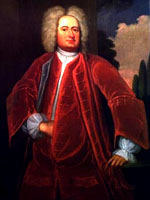The Lincoln Boyhood National Memorial consists of a visitor's center; the Lincoln Living History Farm; and the burial site of Nancy Hanks Lincoln (1784-1818), President Abraham Lincoln's mother, killed by milk sickness. The farm depicts 1820s pioneer life via costumed interpreters, farm animals, crops, herb gardens, and a reconstruction cabin. The farm is not original, but is based on facts known about Lincoln's childhood home and about life typical of the period. Demonstrations include arts, crafts, animal husbandry, farming, and gardening. Lincoln (1809-1865) lived in Indiana between 1816 and 1830, prior to moving to Illinois.
The site offers a 15-minute introductory film, exhibits, living history interpreters, trails, a traveling trunk, and Junior Ranger activities. The website offers audio files about several of Lincoln's family members, a teacher's guide, a lesson plan.
